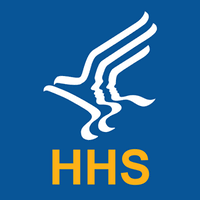New Guidelines Relax Rules for Administering Buprenorphine for Opioid Use Disorder
The CDC recently recorded the largest estimate of overdose deaths in a 12-month period in US History.

The US Department of Health and Human Services (HHS) has released new guidelines for the administration of buprenorphine that removes the long-standing barrier of a requirement of practitioner training, allowing the industry to treat more patients with opioid use disorder (OUD).
The guidelines allow eligible physicians, physician assistants, nurse practitioners, clinical nurse specialists, certified registered nurse anesthetists, and certified nurse midwives to bypass federal certification requirements related to training, counseling, and other ancillary services in order to obtain a waiver to treat up to 30 patients with buprenorphine.
"Increases in overdose deaths emphasize the need to expand access to evidence-based treatments, including buprenorphine that can be prescribed in office-based settings," said Assistant Secretary for Health, Rachel Levine, MD, in a statement. "These guidelines provide another tool to help communities respond to the evolving overdose crisis, equipping providers to save lives in their communities."
The Guidelines
Practitioners who do not want to practice under the new exemption and the 30-patient limit have the option of seeking a waiver per the established protocols.
In addition, the new exemption only applies to the prescription of Schedule III, IV, and V drugs or combinations of such drugs, covered under the CSA, such as buprenorphine. However, the new guidelines do not apply to the prescribing, dispensing, or the use of Schedule II mediations for the treatment of OUDs, including methadone.
Prior to treating patie4nts with buprenorphine, practitioners must obtain a waiver under the Controlled Substances Act by submitting a Notice of Intent to the Substance Abuse and Mental Health Services Administration (SAMHSA) under established protocols.
"The spike we've seen in opioid involved deaths during the COVID-19 pandemic requires us to do all we can to make treatment more accessible." said Acting Assistant Secretary for Mental Health and Substance Use Tom Coderre, who leads SAMHSA, in a statement. "Americans with this chronic disease need and deserve readily available access to life-saving, evidence-based treatment options. These new guidelines are an important step forward in reducing barriers to treatment and will ultimately help more people find recovery."
A Growing Problem
Between October 2019 and September 2020 there were more than 90,000 drug overdose deaths estimated in the US, which represents the highest number of overdose deaths recorded in a 12-month period based on provisional data from the US Centers for Disease Control and Prevention (CDC).
Buprenorphine is an opioid partial agonist that produces effects such as euphoria or respiratory depression at low to moderate doses that was previously approved by the US Food and Drug Administration (FDA).
The Drug Addiction Treatment Act of 2000 previously allowed practitioners to prescribe approved Schedule III through V medications for OUD treatment without needing to hold a separate registration.
The guidelines, “Practice Guidelines for the Administration of Buprenorphine for Treating Opioid Use Disorder” were signed by HHS Secretary Xavier Becerra and published online by the HHS.